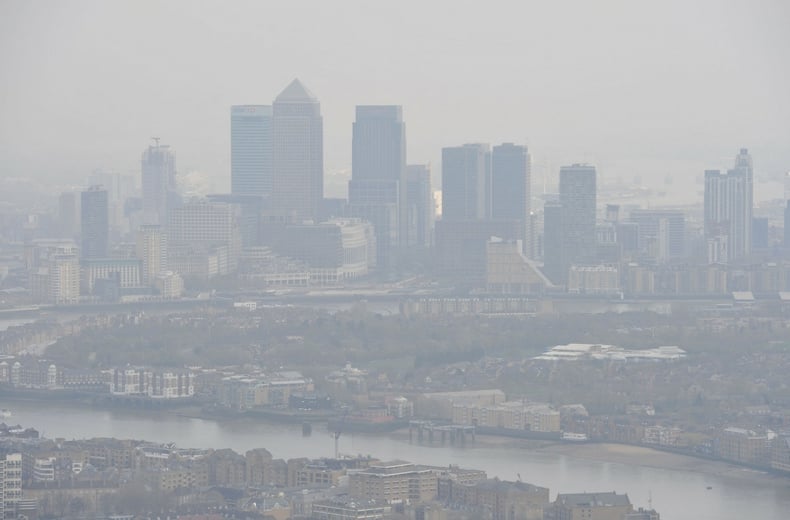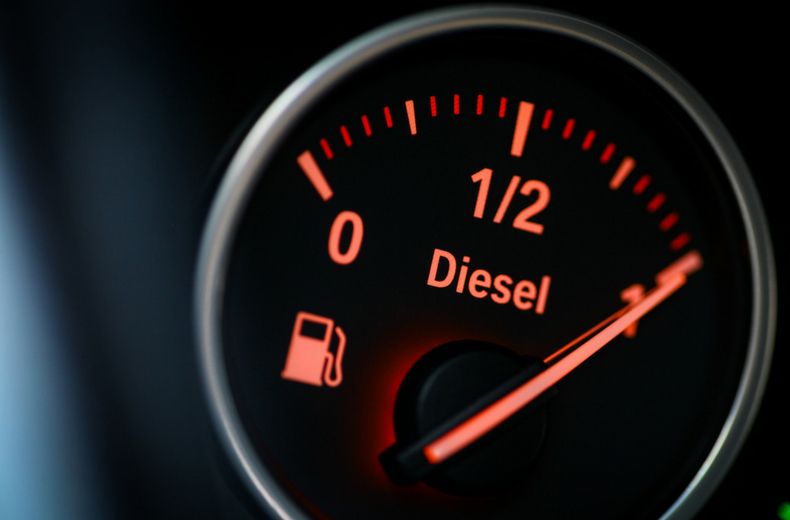We take a closer look at the taxes, fees and surcharges facing diesel owners amid the battle to clean up Britain's air.
Guide contents
- What do people mean by the diesel tax?
- Why have the measures been brought in?
- What are the new diesel car tax changes?
- What's the problem with diesel?
- What went wrong with diesel?
- What's happening in London?
- What other measures is the Government taking?
- Should I still buy a diesel?
- What about scrappage schemes?

Breakdown cover that’s cheaper than AA – from £5.49 for Roadside!*
Complete peace of mind for less
• Cheaper than AA Price Guarantee^
• We get to most breakdowns in 60 mins or less
• Our patrols fix 4/5 breakdowns on the spot

What do people mean by the diesel tax?
The term diesel tax is slightly misleading as it not referring to one tax especially, but a range of charges and taxes that have either already been introduced or are in the pipeline.
They mainly affect diesel drivers, particularly those driving older vehicles.
These include higher VED rates, charges for driving the most polluting vehicles in city centres and surcharges for parking diesel cars in some parts of the country.
Why have the measures been brought in?
The moves are all part of the Government's attempts to tackle air pollution.
This will culminate in a ban on the sale of new conventional diesel and petrol cars and vans by 2040.
Although petrol vehicles also produce polluting emissions, it's the fumes emitted by diesels that are the particular target of government action.
“Diesel vehicles on our roads are causing harmful emissions far above what was assumed and contributing to pollution levels that continue to be damaging to public health,” the Government says in its 2017 air quality plan.
What are the new diesel car tax changes?
Higher vehicle excise duty (VED) charges came into effect for new diesels on 1 April after they were announced by the Chancellor in November’s Budget.
If you buy any new diesel that fails to meet the new Real Driving Emissions 2 (RDE2) standard, you’ll have to pay more on tax in the first year.
The one-band increase applies only to new cars – not vans or commercial vehicles – bought after 1 April 2018.
For example, if you purchase a new Ford Focus diesel that emits 99g/km of CO2, you’ll pay £145 in the first year – a rise of £20.
The biggest first year increase for diesel cars is £520.
You’ll now pay £1,760 if the new car you’re buying emits between 191 and 225g/km of CO2, such as a Mercedes Benz E or S-Class.
In addition to these changes, the company car tax levied on diesel cars has increased from 3% to 4%.
What's the problem with diesel?
To put the diesel tax in context, it's necessary to look at the recent history of the now-controversial fuel.
Back in 1997, the Kyoto protocol climate change agreement legally obligated major nations to reduce their CO2 emissions.
Because diesels produce less CO2 than petrol vehicles, they were seen as a fast solution to this demand.
Accordingly, in 2001 the Labour government of the time introduced a new VED tax policy, which cut taxes on diesels.
Not surprisingly, sales of new diesels soared, with diesel market share in the UK rising from less than 10% in 1995 to nearly 50% in 2016.
READ MORE: Euro 1 to Euro 6 – find out your vehicle’s emissions standard
What went wrong with diesel?
Although diesels produce 15% less CO2 than petrol cars, they emit four times more nitrogen dioxide (NO2) as well 22 times more particulate matter or PM – tiny particles that penetrate the brain, lungs and heart.
The emissions are linked with a range of health conditions including respiratory failure, strokes, heart attacks, dementia and premature death.
Diesel exhaust emissions were categorised as carcinogenic to humans by the World Health Organization's International Agency for Research on Cancer in 2012.
Levels of NO2 in some areas in the UK breach European legal limits partly due to heavy traffic and the associated emissions.
This has led to what politicians and pressure groups describe as a public health crisis, with the Royal College of Physicians linking exposure to these emissions to 40,000 early deaths in the UK each year.
The Government has been under pressure over emissions after consistently missing EU targets to cut air pollution.
It has now been forced to act following a 2014 ruling by the European Court of Justice and has vowed to clean up air in Britain's towns and cities.
Another blow for diesel was the Volkswagen emissions scandal.
It showed that Volkswagen manipulated emissions test results with sensors that detected when the vehicle was being tested in the lab and altered performance to improve results.
DID YOU KNOW? Nitrogen dioxide (NO2) and nitrogen oxide (NO) combined are known as NOx, which is released into the atmosphere when fuel is burned.
What's happening in London?

Since 23 October 2017, drivers have been subject to the new £10 Toxicity Charge, or T-Charge.
This operates in the same area as the London congestion charge from 07.00 to 18.00 Monday to Friday.
The T-Charge means motorists who drive the oldest, most polluting vehicles into central London must pay £10 a day to do so.
The £11.50 congestion charge on top that adds up to a hefty £21.50 a day.
The vehicles affected are those that do not meet Euro 4 emission standards, which means the charge mainly affects vehicles registered before 2006.
Drivers can use TfL's checker to see if their vehicle is affected.
The Ultra-Low Emission Zone
However, the T-Charge is just a prelude to the forthcoming Ultra-Low Emission Zone (ULEZ), which is due to begin in April 2019.
READ MORE: Ultra Low Emission Zones – what you need to know
This will affect thousands more vehicles, including all diesel vehicles that do not meet Euro 6 standards (petrol vehicles only have to reach Euro 4 standards).
The ULEZ will operate within the same boundaries as the T-charge but apply 24 hours a day, seven days a week.
It will impose a daily £12.50 fee on all but the latest diesel cars and vans, as well as a £100-day rate for lorries that are more than five years old.
The zone is currently limited to the very centre of London, but there are plans for a huge expansion out to the North and South Circular roads by the end of 2021.
In addition, Westminster Council is charging 50% more to park diesel cars that were registered before 2015, and some other London boroughs are charging more for residents parking permits for diesels.
Since January, Islington has imposed a £2 an hour surcharge for all diesel cars parking in the borough's short-stay spaces.
What about Clean Air Zones (CAZs)?
Several cities, including Birmingham, Nottingham, Southampton, Derby and Leeds, are due to set up Clean Air Zones in 2019, with other cities to follow.
Leeds only plans to charge lorries, taxis and buses to enter the zone, but other cities could impose a daily surcharge for anyone driving a diesel car not conforming to the latest Euro 6 emissions standards.
In Scotland, the major cities of Glasgow, Edinburgh, Aberdeen and Dundee are planning to introduce Low Emission Zones within the next year.
However, the Government says charging should only be used after other options – such as changing road layouts, removing traffic lights and speed humps and upgrading bus fleets – have been exhausted.
The Government has stopped short of introducing a diesel scrappage scheme.
What other measures is the Government taking?
New models of both diesel and petrol cars now have to pass strict new emissions tests.
From September 2017, cars have been subjected to 90-minute real world tests that recreate a real-life mix of urban, countryside and motorway driving.
These are aimed at cutting new diesel NOx emissions by two-thirds.
The tests have come into force after the Government's diesel testing programme in 2016 found that Euro 6 diesel cars were emitting six times more nitrogen dioxide in the real world rather than in the lab.
Under EU law, car manufacturers that try to cheat diesel emission tests can now be fined 30,000 euros (£26,000) per car. Even though the UK is leaving the EU, a similar policy could be adopted here.
Should I still buy a diesel?
It depends on how you use your vehicle.
If you drive mainly long distances and high a high annual mileage, or if you carry heavy loads, then a modern diesel vehicle may still be practical and economical.
Diesels also have the benefit of lower CO2 emissions, and many of the newest models are considerably cleaner than the older ones, making you less likely to be affected by diesel taxes.
But if you mainly drive in towns and cities, the diesel particulate filter can become clogged, so a petrol or electric vehicle might be a better option.
READ MORE: Should I buy a diesel car?
What about scrappage schemes?
If you own an older diesel, you may be able to change it for a modern one by using one of the scrappage schemes set up by car manufacturers.
REMEMBER: Whatever type of car you drive, there are things you can do to make driving less polluting. See 11 ways to cut your driving emissions.
Want to protect yourself against any losses after an accident? Get legal expenses insurance for just £15 a year with RAC Legal Care Plus.
5 Star Defaqto rated cover
RAC Comprehensive Car Insurance Plus has been given a 5 Star Rating by Defaqto. Get a quote online today.








